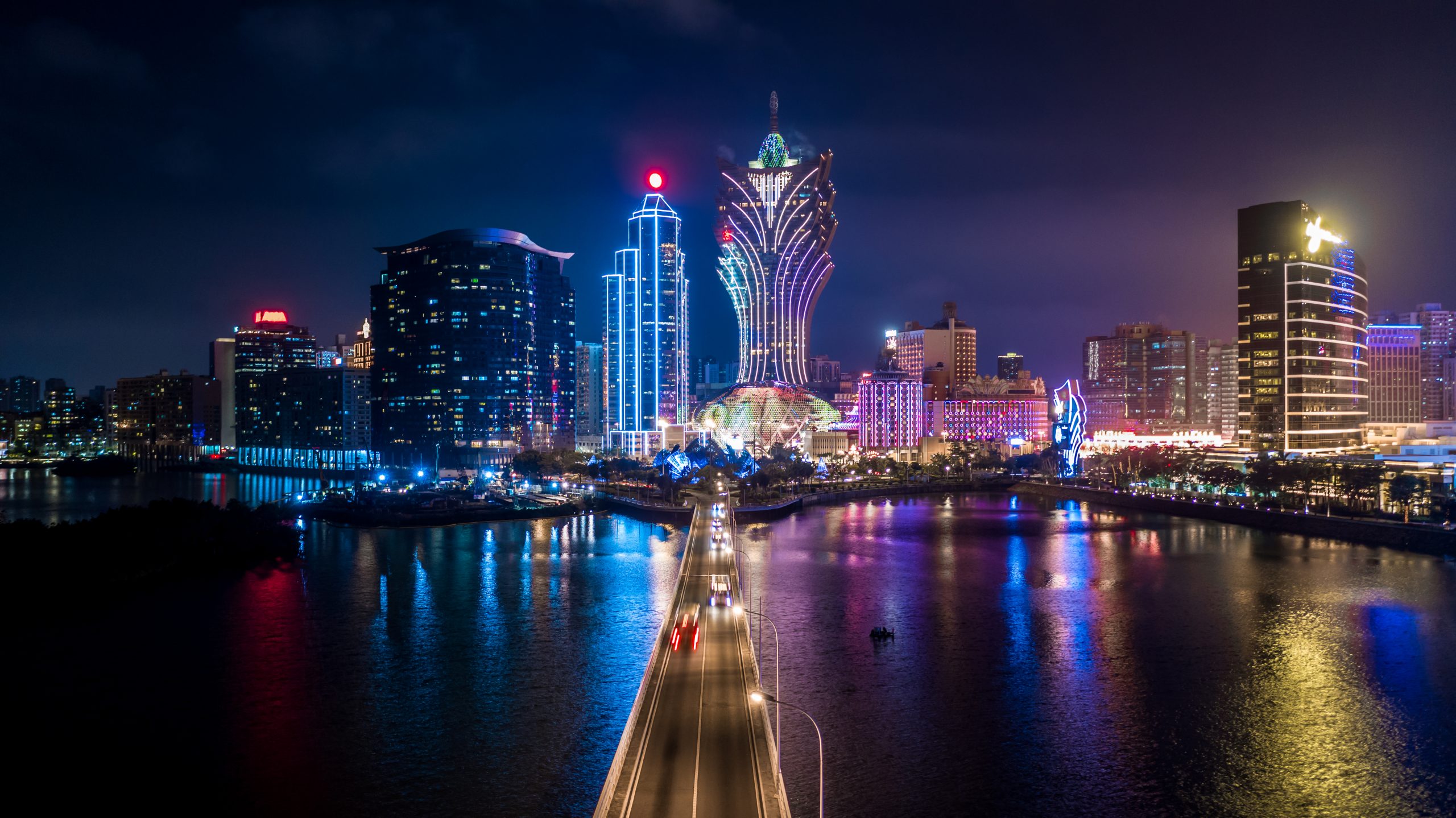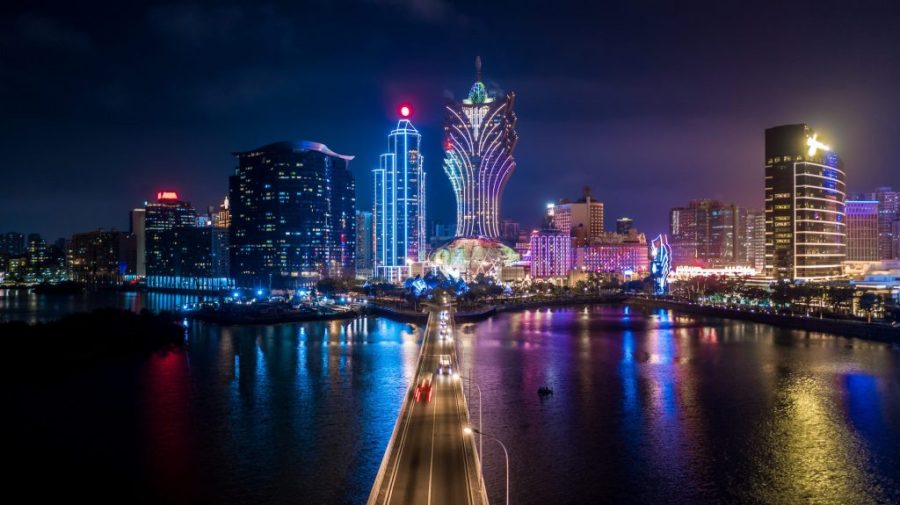Economies in the Asia-Pacific region – excluding Japan – will collectively contribute up to one-third of global spending on smart city initiatives between 2019 and 2023, with China accounting for the majority of the region’s investment in related technologies.
With so many neighbours demonstrating successful examples of smart city planning, Macao has plenty of lessons to draw on for its own development. We explore what it means to be a smart city, and what steps Macao should take to achieve its goals.
What is a smart city?
At the moment, there is no clear definition of what makes a city ‘smart’, but one thing is certain: it is not just about technological advancement. Although the term is an evolving concept, ‘smart city’ mostly refers to initiatives that harness digital innovations for the wellbeing of its citizens.
Best practices worldwide show that this is driven by smart governance, enhanced digital literacy, multi-stakeholder partnerships, investment in forward-looking measures and societal demand for harnessing data in beneficial ways.
As the United Nations Global Centre for Technology, Innovation and Sustainable Development notes, smart cities are inclusive, sustainable and adaptable.
This means that they must provide citizens with equal and secure access to public services, while simultaneously achieving sustainable economic, social and environmental development.
Smart cities should also be resilient against global challenges like climate change and pandemics. To achieve this, different stakeholders (such as civilians, and the public, private and non-profit sectors) need to put data to good use. It boils down to three key elements:
- Value: Does the use and reuse of data provide value? For example, Croatia combined its population census data with administrative and household survey data to create detailed maps of poverty, allowing the government to better allocate anti-poverty funds.
- Trust: Is there a trust-filled environment, bolstered by both governments and businesses, that safeguards user rights and interests? For example, cybersecurity and data privacy provide enhanced protection and create an atmosphere of trust.
- Equity: Do all individuals and stakeholders benefit from the data? Or are poorer or rural regions less likely to have access to and receive digital services? Are investments in new technology only prioritising certain stakeholders (such as large businesses and the government) while neglecting other stakeholders like non-profit organisations? All citizens, including minority groups and underserved communities, should be able to access and benefit from the data.
How ‘smart’ is Macao?
From its Five-Year Development Plans (2016-2020 and 2021-2025) to recent policy addresses, the government has poured time, resources and energy into future-oriented initiatives.
In its “Strategies for Developing Macau into a Smart City and Construction in Its Key Areas” report, published in 2018, the government called for development to revolve around two core principles: human-centric approaches and sustainable practices based on the 17 United Nations Sustainable Development Goals (SDGs).
At the regional level, the “Outline Development Plan for the Guangdong-Hong Kong-Macao Greater Bay Area” provided a blueprint for building an international innovation and technology hub, with the Guangzhou-Shenzhen-Hong Kong-Macao science and technology innovation corridor serving as the main axis.
The 2021 Master Plan of the Development of the Guangdong-Macao Intensive Cooperation Zone in Hengqin also called for greater support for high-end manufacturing, and research and development (R&D) in this science and technology innovation corridor.
Thanks to these top-down efforts, Macao is undergoing a transformation in its digital infrastructure. Citizens now have access to a growing number of beneficial mobile applications, ranging from the “Common Access to Public Services of the Macao SAR” app to access e-government services to the “Macau-in-Pocket” all-in-one information app for citizens and tourists.
Residents in Macao have also benefited from burgeoning partnerships with innovators like Alibaba and SenseTime. For instance, Alibaba agreed to collaborate on artificial intelligence (AI) and big data-driven digital solutions to common problems. For example, the tech giant has worked with the Transport Bureau to develop a vehicle accident detection service.
The company also teamed up with the Macao Government Tourism Office to create a “tourism information interchange platform”, which collects and shares data on travellers’ preferences, behaviours, real-time footfall at popular landmarks and traffic conditions. This data simultaneously improves the travel experience for visitors and helps the government develop smarter tourism plans.
However, a disconnect remains between everyday people and such initiatives. Despite gradual improvement to our lives, Macao’s smart city initiatives remain limited in their reach and impact. Many have been delayed, too, lacking effective leadership and implementation to bring these ideas to life.
To take the next step in its smart city development, the Macao government needs to put in place clear evaluation criteria and execution plans, boost meaningful grassroots participation beyond public consultation sessions and ensure that its initiatives truly benefit everyone in the city.
Transparency and timelines are crucial
In some ways, government policies and regulations are making progress. For example, the 2019 Macau Cybersecurity Law has helped to fortify the networks, data and operations of critical infrastructure providers (such as the public sector, banks, utility companies and internet service providers), while the 2020 e-government law (Law No. 2/2020), moved some document-heavy processes online.
But the Macao government still lacks the evaluation and implementation procedures needed to realise its broader plans. The 2018 smart city consultation document, for one, does not provide clear timelines for many of the proposed targets. What’s more, the final proposal has yet to surface in the public domain after it was submitted to the government.
The four-year Framework Agreement of Strategic Cooperation on Smart City Development, signed in 2016 between the government and Alibaba, also lacked concrete timelines for its second phase of cooperation, which ran from July 2019 to June 2021. During these two years, the leading cloud-computing company planned to embark on projects related to environmental protection, customs clearance procedures, and forecasting models for Macao’s economy.
However, many of the Phase II projects were delayed due to Covid-19. And similarly, the general public does not have access to final evaluations of the projects, nor the framework agreement that assesses the investment that has gone into them, let alone their execution and impact.
The Macao government launched the Open Data Platform in 2019, which currently provides 534 data sets from 34 departments or institutions. However, the data mostly features infrequently updated operational statistics alongside some societal figures, such as census data and housing prices, but does not provide much information that can support or track smart city initiatives.
When residents cannot evaluate the government’s performance, it is impossible to hold officials and their partners accountable. At the same time, it’s also challenging for the government to improve their services and procedures.
Useful case studies from across the region provide valuable learning opportunities. Take Singapore’s Punggol Digital District Open Digital Platform (ODP) for example. When it launches in 2023, the secured platform will provide real-time data collected from a network of sensors and systems in the district, enabling businesses and students to perform simulations for smart city initiatives.
As Singapore speeds ahead, in Macao, bureaucratic procedures need to be streamlined to effectively lead smart city initiatives. The so-called Smart City Development Group (智慧城市發展專責小組), which was chaired by former chief executive Chui Sai On until his term ended in 2019, comprises representatives from different governmental departments.
The government created this group to coordinate actions on smart city initiatives (such as the Alibaba partnership) under the Five-Year Development Plan. But since the current chief executive, Ho Iat Seng, assumed office, the group has not been active publicly since providing advisory opinions on a 2018 consultation document.
Without an effective way to manage its smart city initiatives, Macao risks falling behind when it comes to digital transformation.
For example, the new Telecommunications Law granting convergence licences to telecommunications operators (meaning, they would only need to apply for one single licence to run multiple services like landline phone services and mobile services) passed public consultation reviews in 2019, but it will not take effect until the second half of 2023 – as much as a year after the first 5G licences are expected to be issued. Without laws outlining the ground rules, major telecommunications operators could monopolise 5G services, potentially increasing prices and reducing efficiency.
In this case, South Korea’s smart city reform offers a blueprint for Macao. In 2019, the country revised its “U-City Act” into its “Smart City Creation and Industrial Promotion Act”, creating a broader framework to empower multi-stakeholder collaboration and expand the scope of smart city concepts beyond improving underground infrastructure.
The country’s recently amended “Smart City Creation and Industrial Promotion Act” also aims to support innovative industries using new technologies – such as driverless cars and smart grids – and a “private proposal system”, where private companies have more opportunities to introduce creative ideas.
Improving digital literacy and participation
A smart city’s success ultimately hinges on the perception of its citizens, and so their participation is crucial. But in order to obtain meaningful input from all sectors of society, it’s essential to improve digital literacy.
Macao has made commendable efforts to increase digital literacy in recent years, particularly among youth. For instance, information and communications technology (ICT) competitions have turned student ideas into reality, while internships with regional tech giants have empowered young minds.
However, there is a lot of work left to do to boost digital literacy across all groups.
In the 2020 Internet Usage Trends in Macao report, 24 per cent of users said they had experienced internet privacy violations, and 33 per cent said they had reposted fake news before realising the mistake.
Relatively low digital literacy presents a serious obstacle when it comes to scaling up smart city solutions and building trust in the use of technologies. The Macao government and educational institutes will need to invest in digital literacy, especially to support marginalised groups and senior citizens.
So what can Macao do? Let’s consider Thailand’s Khon Kaen municipal smart healthcare model, which won first prize at the 2018 IDC Smart City Asia Pacific Awards. The government overhauled the healthcare system in the northeastern Thai city, enhancing services with smart ambulance operations, a digitised Health Information Exchange platform, and monitoring via a smart wristband. To ensure elderly and vulnerable groups could benefit from the system, authorities held training sessions to teach them how to navigate the smartwatch and online platform.
Inclusive urban services
Currently, Macao’s smart city collaboration revolves around partnerships between businesses, the government and academic research institutes. But more needs to be done to ensure that citizens and civil society organisations (CSOs) actively participate in smart city initiatives, too.
A recent report published by the United Nations University Institute in Macau states that nearly 70 per cent of local CSOs depend on digital technologies to provide services, especially to the underserved. Yet less than 10 per cent have undertaken risk assessments covering cybersecurity threats. What’s more, their centres are often equipped with decade-old systems and hardware, which are more vulnerable to cybersecurity risks and computer crashes.
As underserved communities tend to rely on Macao’s non-profit and NGO sector for essential services, it is important to boost investment in local CSOs to develop technical know-how among their workers and volunteers, and enable greater access to smart city initiatives on secure, safe networks.
A smart city is not just about delivering technological advancements, however. It ultimately requires putting citizens’ well-being first by harnessing data to provide sustainable economic, social and environmental development for all. We need to start working together across all sectors to create a value, trust and equity-driven system where smart city initiatives can flourish and benefit all Macao citizens.
About Genervision House
Genervision House is a Macao-based platform for knowledge sharing and advocacy, as well as a community that promotes the 17 United Nations Sustainable Development Goals. Genervision House seeks to raise the awareness of the local community on sustainable development, to encourage more Macao locals to participate in the practice and promotion of sustainable development, and jointly contribute to the development of the local community and different regions of the world. Genervision House is also the first member organisation from Macao to join the United Nations SDSN Youth Initiative. Visit the official website to learn more.






